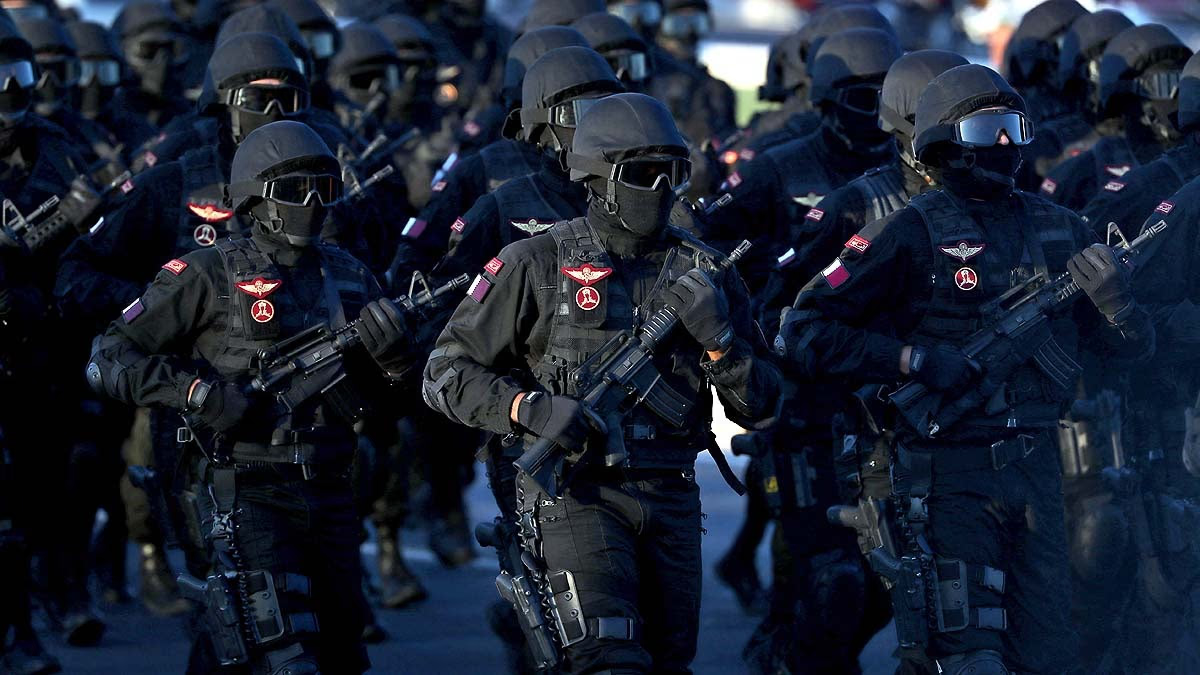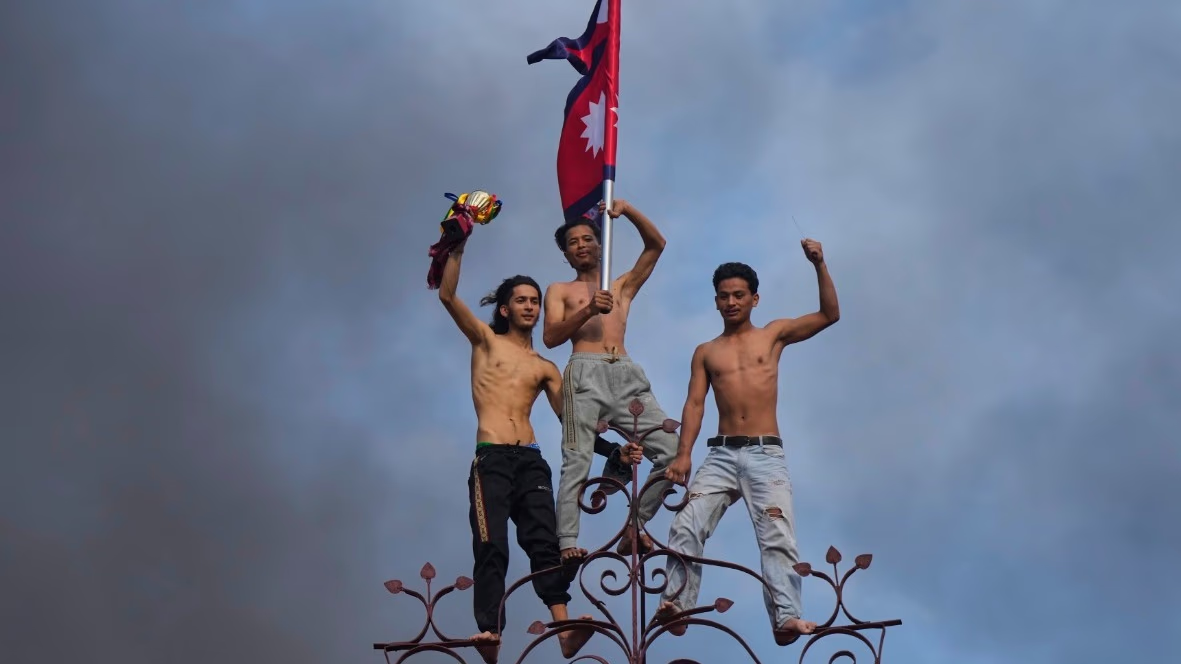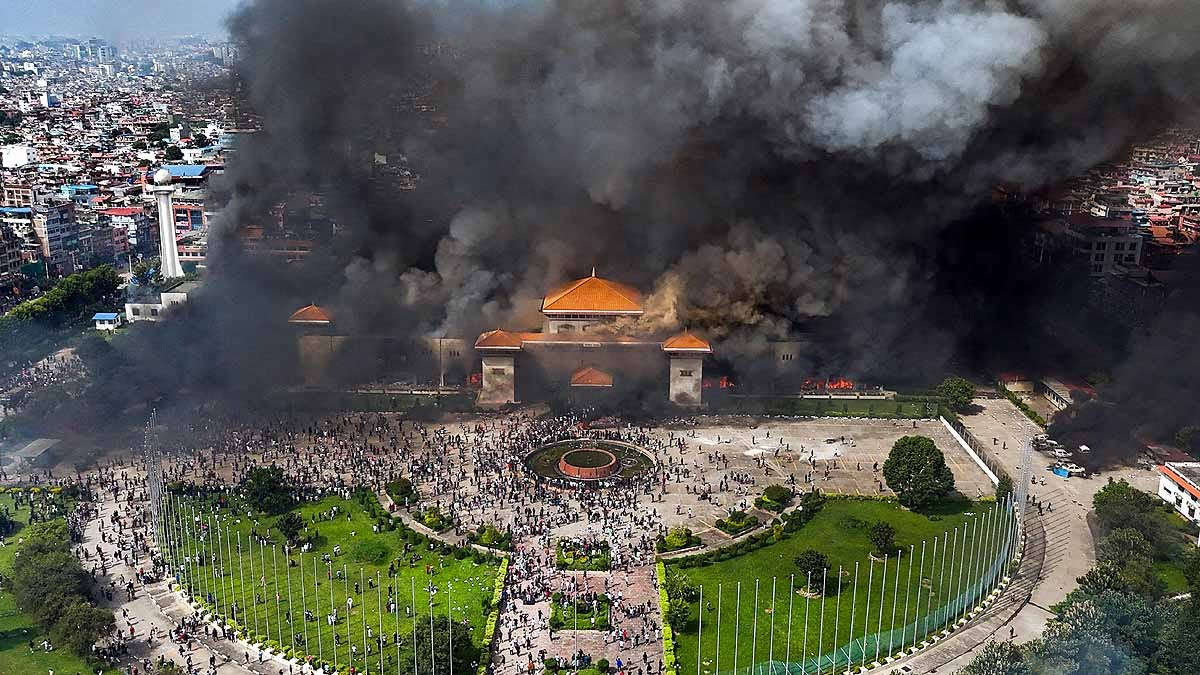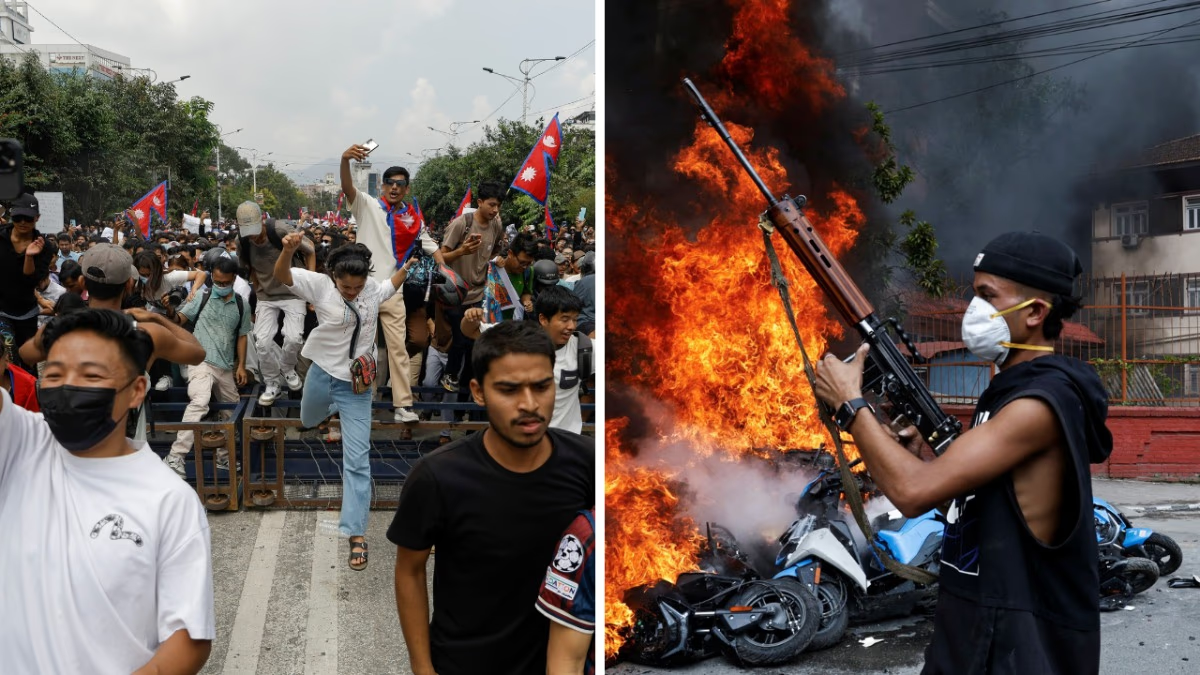On September 9, 2025, Israel launched an airstrike on Hamas leaders in Doha, Qatar's capital, raising questions about Qatar's military capabilities. Could it respond to an Israeli strike? Based on the 2025 Global Firepower Index (GFP), we will compare the military strengths of Qatar and Israel to understand whether Qatar can confront a formidable nation like Israel.
Military Strength Comparison: Qatar vs. Israel
1. Global Firepower Index 2025
Israel:
Positioned 15th among 145 countries in the 2025 Global Firepower Index with a power index score of 0.2661 (a lower score indicates greater strength). Israel is one of the strongest military forces in the Middle East.
Qatar:
Qatar ranks 62nd with a power index score of 1.0786, making it a medium-level military power. Qatar's might relies on its economic assets and modern weapons, but it lags far behind Israel.
Read More:
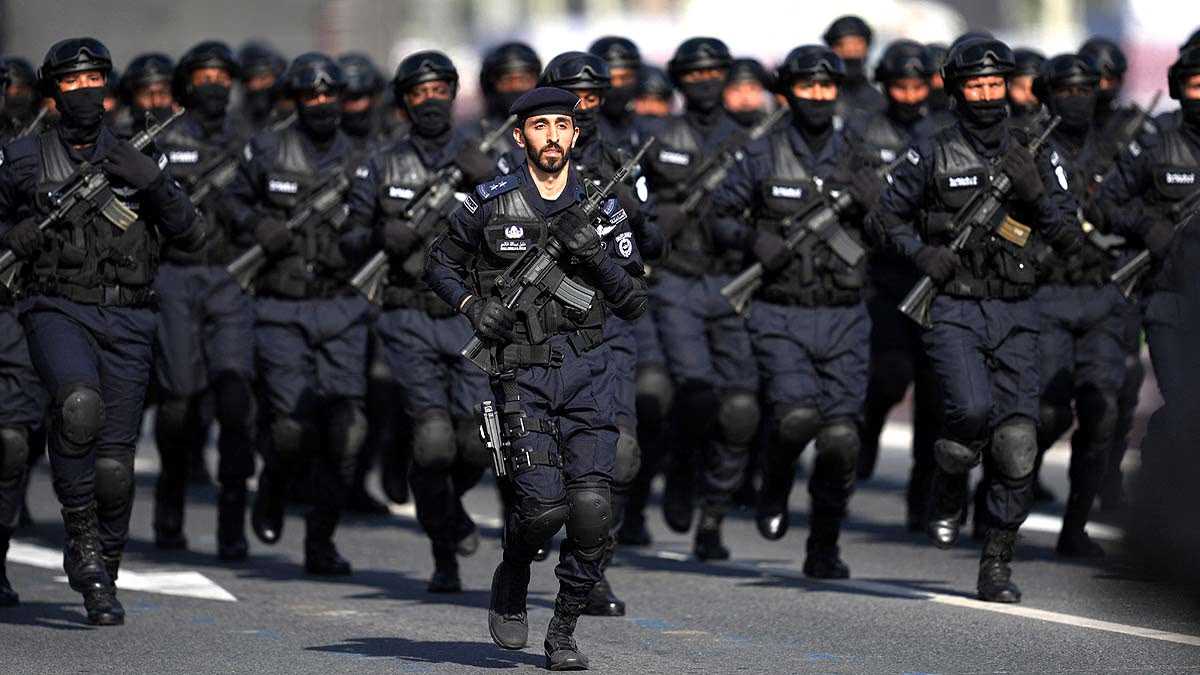
Source: aajtak
2. Military Manpower
Israel
Total population: 9.3 million.
Military personnel: 630,000 (170,000 active, 465,000 reserve).
Mandatory military service for men aged 18-35 (36 months for men, 21 months for women).
Annually, 60,000 people are available for military service.
Both men and women are part of Israel's military, known for its disciplined and well-trained army.
Qatar
Total population: 2.7 million
Military personnel: 66,550 (11,800 active, remaining reserve)
No mandatory military service, though since 2018, there's a 4-month national service for men.
Annually, 20,000 people are available for military service.
Qatar's army is small and mostly relies on professional soldiers.
Comparison:
Israel's army is much larger and better-trained than Qatar's. Israel's mandatory military service provides it with a significant manpower advantage.
Read More:
3. Air Power
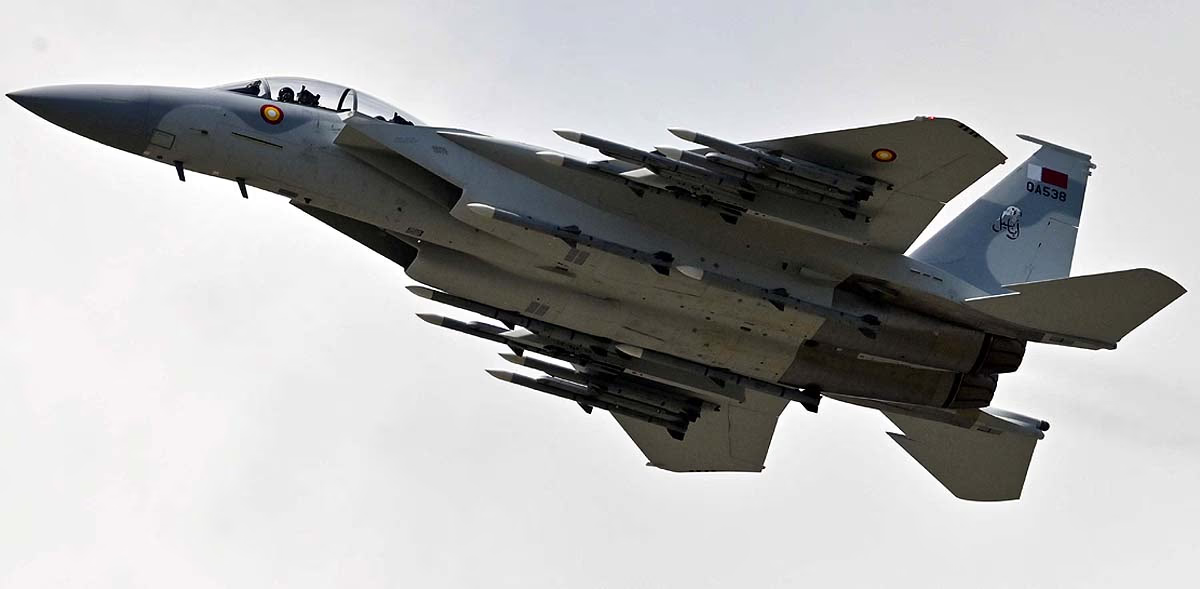
Source: aajtak
Israel
Total aircraft: 612 (241 fighter jets, 48 attack helicopters, 146 training aircraft).
Main weapons: F-35 stealth fighter jets, F-15, F-16, and Apache helicopters.
Israel's air force is the most advanced in the Middle East, renowned for long-range strikes and precision targeting.
Qatar
Total aircraft: 149 (36 fighter jets, 24 attack helicopters)
Main weapons: Rafale (France), Eurofighter Typhoon (UK), F-15QA, and Apache helicopters.
Qatar has modernized its air force in recent years, including 2500 Hellfire missiles.
Future acquisitions of F-35 are possible, but yet to be confirmed.
Comparison:
Israel's air force is four times larger and more experienced than Qatar's. While Qatar's air force is modern, it lacks experience and numbers.
Read More:
4. Land Forces
Israel
Tanks: 1,370 (Merkava IV, one of the world's most advanced tanks).
Armored vehicles: 43,000
Artillery: 650 (300 self-propelled, 300 rocket launchers)
Israel's land forces are among the strongest in the Middle East and are equipped with modern technology.
Qatar
Tanks: 62 (Leclerc, from France)
Armored vehicles: 2,000
Artillery: 89 (28 self-propelled, 12 rocket launchers)
Qatar's land forces are small and mainly designed for defense.
Comparison:
Israel's ground forces are much larger and possess more combat experience than Qatar's. Qatar's army is defensive and limited in size.
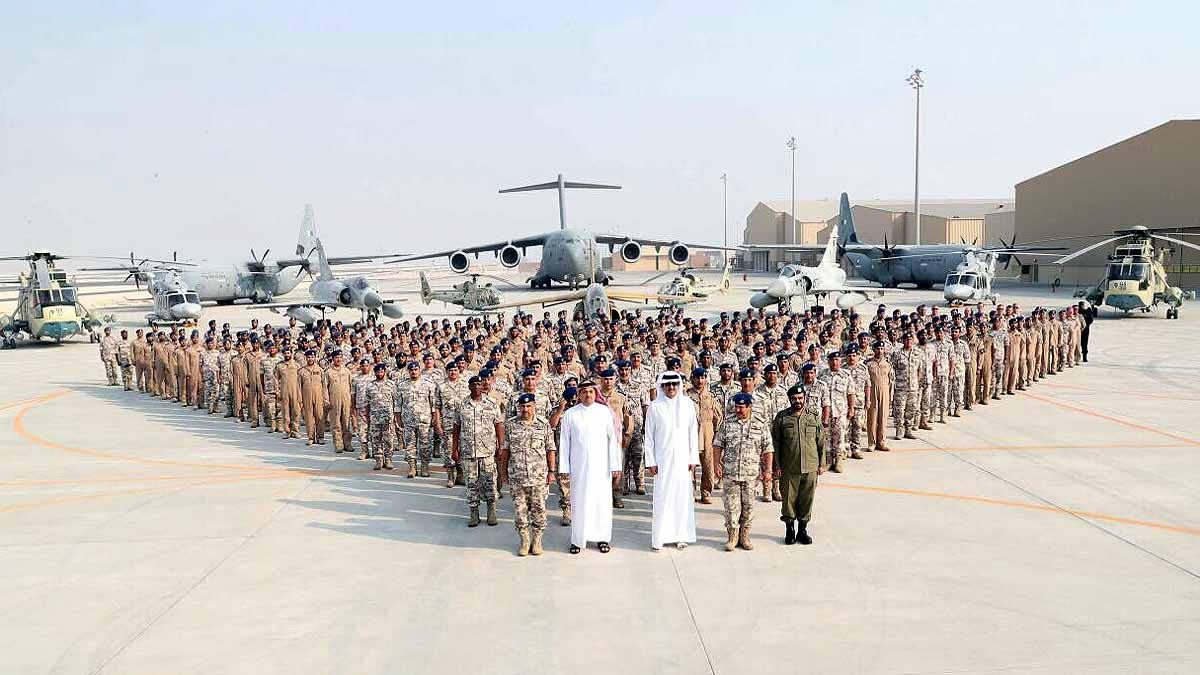
Source: aajtak
5. Naval Forces
Israel
Total ships: 67 (7 corvettes, 5 submarines, 45 patrol boats)
Submarines (Dolphin-class) are believed to be capable of carrying nuclear missiles.
Israel's navy is small but state-of-the-art, specializing in missile strikes and coastal defense.
Qatar
Total ships: 86 (7 corvettes, 79 patrol boats, no submarines)
Qatar's navy focuses on coastal defense and patrols, with ships from Italy and Turkey.
Recently, Qatar has invested in strengthening its naval forces.
Comparison:
While Qatar has more ships, Israel's submarines and missile capabilities make its navy more powerful.
6. Missiles and Weaponry
Israel
Nuclear Weapons:
Israel is an undeclared nuclear power, estimated to have 80-200 nuclear weapons.
Missiles:
Jericho III (long-range ballistic missile), Delilah cruise missile, Iron Dome, and David's Sling missile defense systems. Israel's missile technology is among the most advanced globally, with long-range strike capabilities.
Read More:
Qatar
Missiles:
Hellfire missiles (for Apache helicopters), Bayraktar drones from Turkey, and short-range missiles. Qatar lacks nuclear weapons or long-range ballistic missiles.
Comparison:
Israel's missile and nuclear capabilities are far superior to Qatar's. Qatar's missiles are defensive and of limited range.
7. Combat Experience and Strategy
Israel: Israel has fought several wars (1948, 1967, 1973, Lebanon War, Gaza War) and its forces have extensive experience dealing with terrorism and regional threats. The 2023 Hamas attack and 2024 actions against Hezbollah, Houthis, and Iran further proved its military might.
Qatar: Qatar has never fought a major war. Its forces have limited experience, mostly involved in peace missions and regional alliances (like GCC).
Comparison:
Israel's military has vast combat experience, whereas Qatar's forces are defensive and less experienced.
Can Qatar Respond to an Israeli Attack?
On September 9, 2025, Israel's airstrike in Doha involved 15 fighter jets and 10 munitions, resulting in 6 casualties, including a Qatari security officer. Qatar termed it a “violation of international law” and reserved the right to respond.
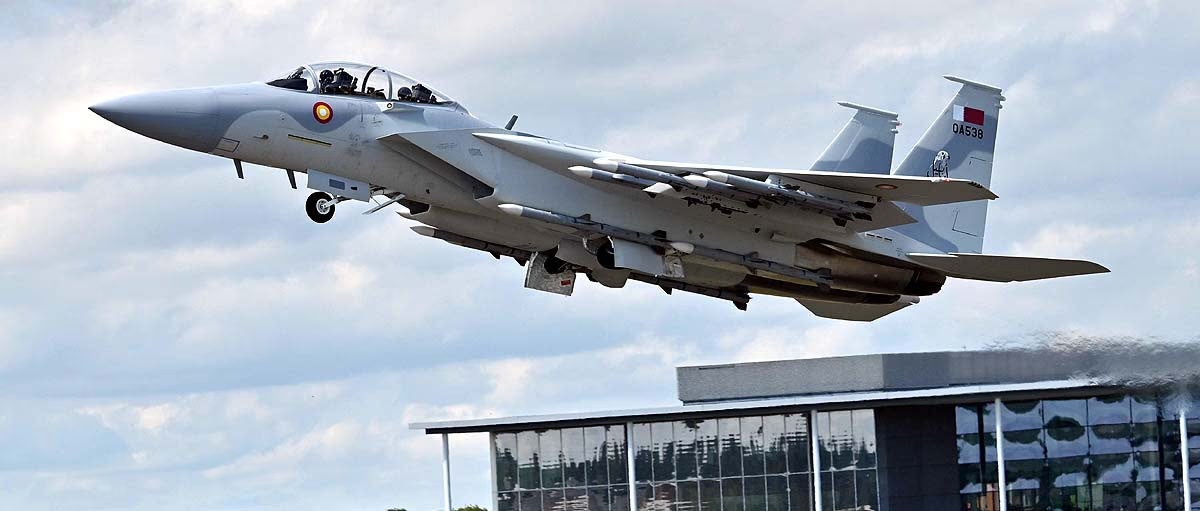
Source: aajtak
Qatar's Response Capability
Limited Military Force:
Equipped with modern weapons (Rafale, F-15QA, Hellfire missiles), Qatar's military is much smaller and less experienced compared to Israel. Qatar lacks long-range missiles or nuclear weapons, which Israel possesses.
American Support:
The U.S. has the Al Udeid Air Base in Qatar, housing 10,000 American troops. This base is crucial for Qatar's defense, but America can't launch attacks from it without Qatar's consent.
Diplomatic Power:
Qatar's real strength lies in diplomacy and economic influence. Through media like Al Jazeera and international mediation (such as Gaza peace talks), Qatar can exert pressure.
Regional Alliances:
Qatar is part of the Gulf Cooperation Council (GCC) with countries like Saudi Arabia, UAE, and Turkey. Saudi Arabia and Turkey condemned the Doha strike, but military support seems unlikely.
Read More:
Challenges
Israeli Military Superiority: Israel's air force, missile defense systems (Iron Dome), and nuclear capabilities are far ahead of Qatar. During the Doha strike, Israel executed a precise attack from a distance, which Qatar couldn't prevent.
American Neutrality: U.S. President Donald Trump condemned the strike, affirming Qatar as a strong ally, but denied military intervention.
Limited Retaliatory Options: Qatar lacks the capability for direct military strikes on Israel. Its forces aren't prepared for long-range engagements.
Qatar's Countermeasures
Legal Action: Qatar has filed a complaint against Israel with the United Nations Security Council and formed a legal team.
Diplomatic Pressure: Through its mediation role and Al Jazeera, Qatar can internationally denounce Israel.
Regional Support: Qatar might seek backing from Iran, Turkey, and other Arab nations, though military coalition is unlikely.
